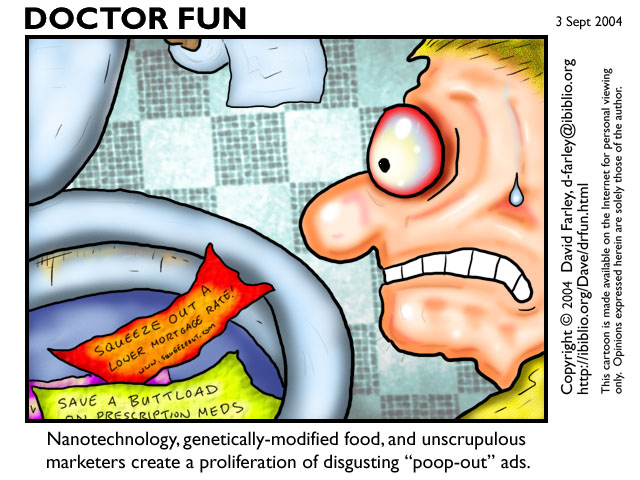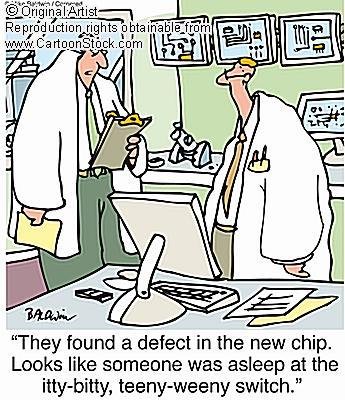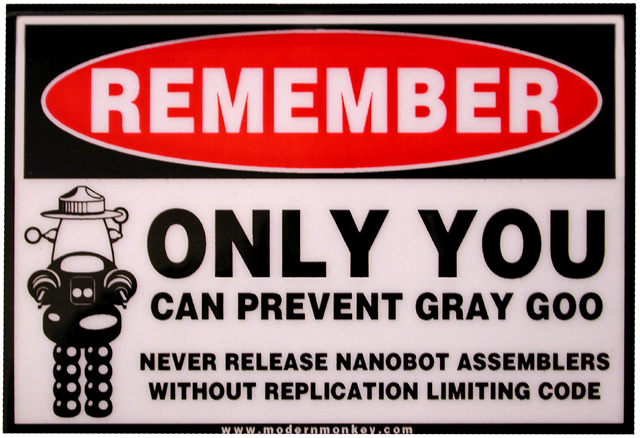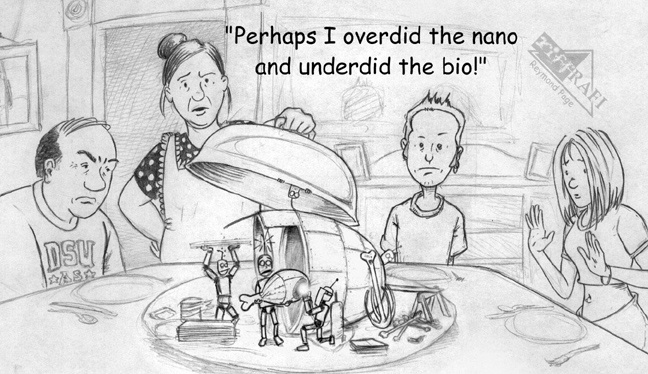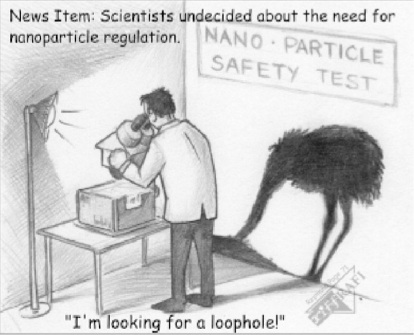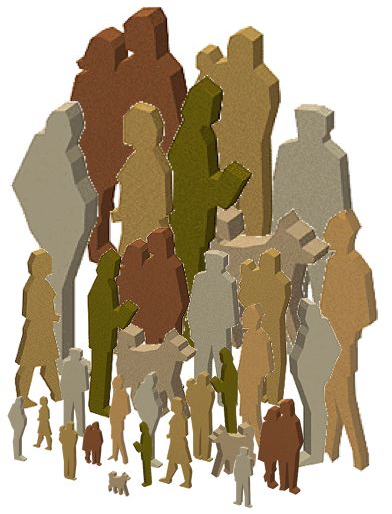 |
Nanotechnology and Society An undergraduate course on nanotechnology and its societal implications. |
Science and Technology Studies 201, Section 84405, Spring 2005, University of Wisconsin-Madison. |
This 3-credit course was designed and taught by Charles Tahan in the spring semester of 2005, the first year it was offered at the University of Wisconsin-Madison. It was co-develeped with members of the Wisconsin Nanotechnology and Society Initiative. |
Nano Joke ContestJokes, comics, poems, songs, stories, anything is fair game. Cite your source!
- Submitted by Nicole - Submitted by Rachael Nanotechnology is going to be HUGE! - Submitted by Aaron Pre-Med Upstart As a pre-med student at UW Madison, I had to take a difficult class in physics. One day our professor was discussing nanotechnology, complicated concept. A student in the back of Sterling rudely interrupted to ask, "Why do we have to learn this stuff?" "To save lives." The professor responded quickly and continued the lecture. A few minutes later, the same student spoke up again. "So how does physics save lives?" he persisted. "It usually keeps the idiots like you out of medical school," replied the professor. -anonymous - Submitted by Joey nanoterminology screw ups in papers April 19, 2004 NY Times Technology The NY Times' brilliance rings through a recent article about nanotechnology. The paper writes: The term nanotechnology comes from the nanometer, which is one-billionth of an inch. One can imagine part of the problem comes from the fact that people often talk about nanotechnology for things that are smaller than a billionth of a meter. An example is here, at Columbia Nanotechnology Symposium: THE VIEW FROM ONE BILLIONTH OF AN INCH: ... Scanning probe microscopy allows molecules to be imaged on a scale of a billionth of an inch. Experiments in which scanning probe techniques are used to observe self-assembly of molecules will be described. Possible uses of self-assembly to develop nanotechnology will also be considered. In addition, experiments in which scanning probe techniques are used to look at nanoscale processes of importance and at environmental problems will be described. Still, it seems as though it would have been prudent to look up the definition before providing it. They eventually fixed their mistake. -Submitted by Joey There’s a nuclear scientist, a genetic engineer and a nanotechnologist all being held at the barrel of a gun by a crazy man. The captor says he’ll shoot all of them unless they can convince him they are doing something good for the world.The nuclear scientist tries first, explaining that nuclear power is “clean, cheap, and will solve climate change.” Unconvinced, his captor shoots him dead and turns next to the nanotechnologist to plead his case.Before he can say a word however, the genetic engineer intervenes. “No!” pleads the genetic engineer “please shoot me first – I’d rather die than hear yet another lecture on why nanotechnology is going to save the world!”[Link]
- Submitted by Mike P (then Adam, then ) - Submitted by Brent The sequel to Terminator 3 : TERMINATE-US 4: RISE OF THE NANO-MACHINES! - Submitted by Nicole *Nanotechnologists tell the joke: Q: What is the Uncertainty Principle? A: The Uncertainty Principle states that people who know just a - Submitted by Mark P
- Submitted by Al |
|
